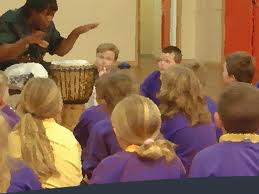
In Part 1 I asked, “What if I could suggest a Sunday School lesson method which will increase involvement/participation, retention (remembering), evangelism, and preparation of new teachers? Would you be interested in the method?” In Part 2, I overviewed suggested steps of the Bible story telling method and I pointed out times when the method naturally increases involvement and participation of the class. In Part 3, I will focus on times when the method improves and increases retention (remembering) of the Bible teaching and truth. If they remember, they will be better able to obey!
OVERVIEW OF METHOD. I discussed the method in Part 2. Consider the following ways the method leads to greater retention:
- REVIEW. Review is reinforcement. In this case, review is asking attenders about last week’s story and truth. And review time asks what they did to live it out during the week between. This magnifies the expectations for God’s Word having impact in their lives. And it reminds them of what what studied, committed, and carried out as a result.
- INTRODUCTION. A good introduction as described in Part 2 increases attention and focus on the Bible story. It sets attenders up to pay attention to the story for a purpose. This raises the likelihood of remembering short-term (right after the story is told) and long-term (the week following).
- STORY. Telling Bible stories tends to catch more attention. Hearing a story told well is usually more memorable than reading a good story. Many listeners will be more likely to retell the story after hearing a story than they could after reading it. When reading and when hearing a story, our imagination tends to build a visual representation of the story (sense of seeing). But when listening to a Bible story, another sense is involved: hearing. By increasing number of senses involved, retention naturally increases. Seeing OR hearing alone results in 20-30% retention in 72 hours, while seeing AND hearing combined result in 50% retention. I am convinced that stories may lead to greater retention than those statistics tell.
- REBUILD. This is the time after telling the story where you ask listeners what happened first and what happened next until the story has been sequentially retold. This engages listeners and helps them to have heard the story twice before considering questions, context, and application. Taking time to rebuild the story is worth the time because of the reinforcement and the retention that results.
- QUESTIONS. Questions in general don’t result in greater retention, but questions which keep leading attenders to examine the story do. When we help listeners examine the characters, context, and events. They grasp the historical context and are able to remember the details better and to appropriately translate and apply the details to life today. Questions that point to the story serve as a third review of the story resulting in greater remembering.
- GET EVERYONE TALKING. Ideally no one person should do more than 25% of the talking, including the teacher/group leader. What that means is that there will be intentionally greater participation and involvement. That results in greater retention of the story, details, and truth. The more we lead them to interact with the passage, the more they remember.
- RETELL. Ideally the session would end with an opportunity for an attender volunteer to tell the story to the class. This is one more way to review and reinforce the story, and it increases retention. But an additional way to increase retention is to give the class the assignment to tell the story to someone during the week and to return next week to share what happened.
What other ways can you see that this method of story telling the Bible could result in greater remembering of God’s Word and truth? How could you implement this in your class? Why not give it a try? Pray. Prepare well. Give God your best. Tell the Bible story and watch what happens! Use this method, and come back to this post with a report of the response of your group. Or ask questions or share your comments. Give God your best effort in leading His people to know and live out His Word! Be revolutionary!
Leave a Reply